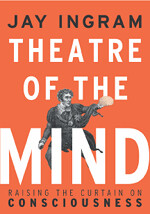
Now most people will think this is creepy. That we shouldn't play God and mess with nature like that. But not I; sign me up, I want to get rid of sleep altogether. I remember in my 2nd year of university I read a lot about sleep. Most of the best sources seemed to agree that sleep serves little purpose today. One theory is that we only sleep at night because it would be dangerous for our ancestors to be out and about at night. Since we can't see in the dark, we'd be likely to fall into a lake or the mouth of a tiger. Much better that we just lie dormant in a cave while it's dark.
This doesn't apply today, where we have electric lights all over the place. We can have artificial daylight 24 / 7. Think of how much more time we could have to be productive, and more importantly, have fun and enjoy life, if we didn't have to spend 8 hours a day lying there doing nothing.
People will say "oh, but I like sleeping". Well yeah, me too, but I only like it when I'm tired. If a pill made it so I was never tired, I'd never feel like sleeping.
OK, so there are some advantages to sleep. Dreaming is the biggie. I love waking up and remember all the crazy ass dreams I had. Dreaming is one of the purest sources of creativity in everyday human life, and it would be a shame to lose it. There is also evidence that sleep helps with certain brain functions, such as consolidating memories.
So here's my ideal situation: We take a pill once a day, 6 days a week, that keeps us awake and alert 24 / 7. This gains us 8 x 6 = 48 hours = 3 WHOLE WAKING DAYS (assuming we're awake 16 hours per day) of extra time per week. There are people who can write novels in three days! Then, like God himself, on the 7th day we rest. We skip the pill and get a good night's sleep, gaining all the benefits of sleep and waking up with some sweet dreams.
It's a perfect solution to make life awesomer for everyone. Disagree? You're wrong.
P.S. Here's another fun link: How to Become an Early Riser. Just remember that this is some random blogger who might not know what he's talking about.
